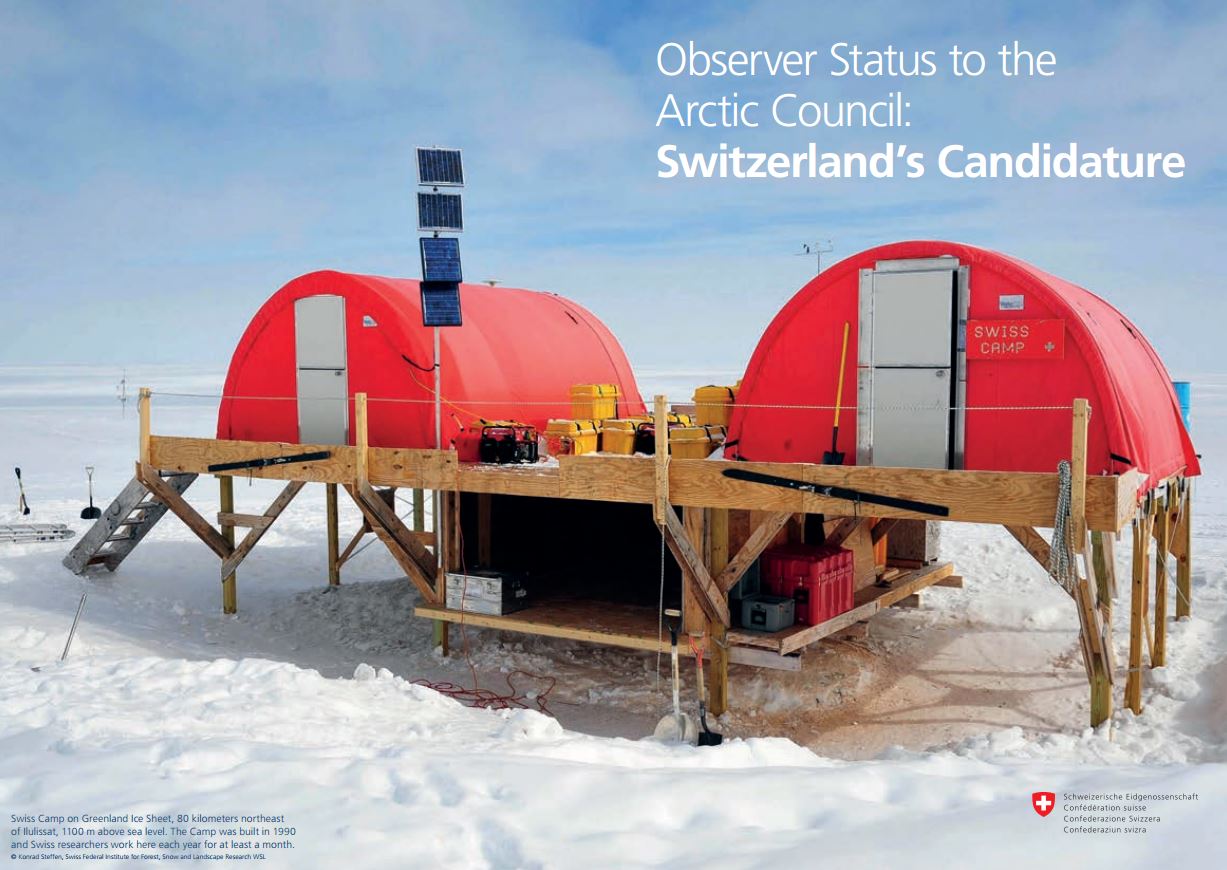Switzerland is applying for observer status to the Arctic Council. As reported in the material submitted by the Swiss Confederation, "this candidature is part of Switzerland's long-lasting commitment to peaceful international cooperation and to research excellence".
The application will be discussed, along with other issues, during the next Arctic Council Ministerial Meeting, to be held in Iqaluit (Canada) on April 24th and 25th 2015. In addition to the eight Member States and the six Indigenous associations (permanent participants), the Arctic Council counts twelve non-arctic countries, nine Intergovernmental and inter-parliamentary organizations, and eleven non-governmental organization as observers (the EU is allowed to observe proceedings in the Council until a final decision is made on its application to become an observer).
While decisions at all levels in the Arctic Council are the exclusive right and responsibility of the eight Arctic States with the involvement of the Permanent Participants, observers may:
- Observers shall be invited to the meetings of the Arctic Council once observer status has been granted.
- While the primary role of observers is to observe the work of the Arctic Council, observers should continue to make relevant contributions through their engagement in the Arctic Council primarily at the level of Working Groups.
- Observers may propose projects through an Arctic State or a Permanent Participant but financial contributions from observers to any given project may not exceed the financing from Arctic States, unless otherwise decided by the SAOs.
- In meetings of the Council's subsidiary bodies to which observers have been invited to participate, observers may, at the discretion of the Chair, make statements after Arctic states and Permanent Participants, present written statements, submit relevant documents and provide views on the issues under discussion. Observers may also submit written statements at Ministerial meetings.
Switzerland has listed seven reasons to describe its high degree of involvement in the Arctic: the characteristics of the Swiss landscape very similar to the Arctic landscape, Swiss mountain climate, Swiss research in the Arctic long tradition, Switzerland's strong commitment to international polar research in cooperation with the eight Arctic countries, Swiss leadership in international negotiations in addressing climate change, Swiss maritime presence (althoug a landlocked country, Switzerland has ratified the UN Convention on the Law of the Sea and all major conventions concluded within the framework of the International Maritime Organization), Swiss' advocacy for indigenous issues in international fora.
Read more here.
(Source: Arctic Council, Arctic Journal).

